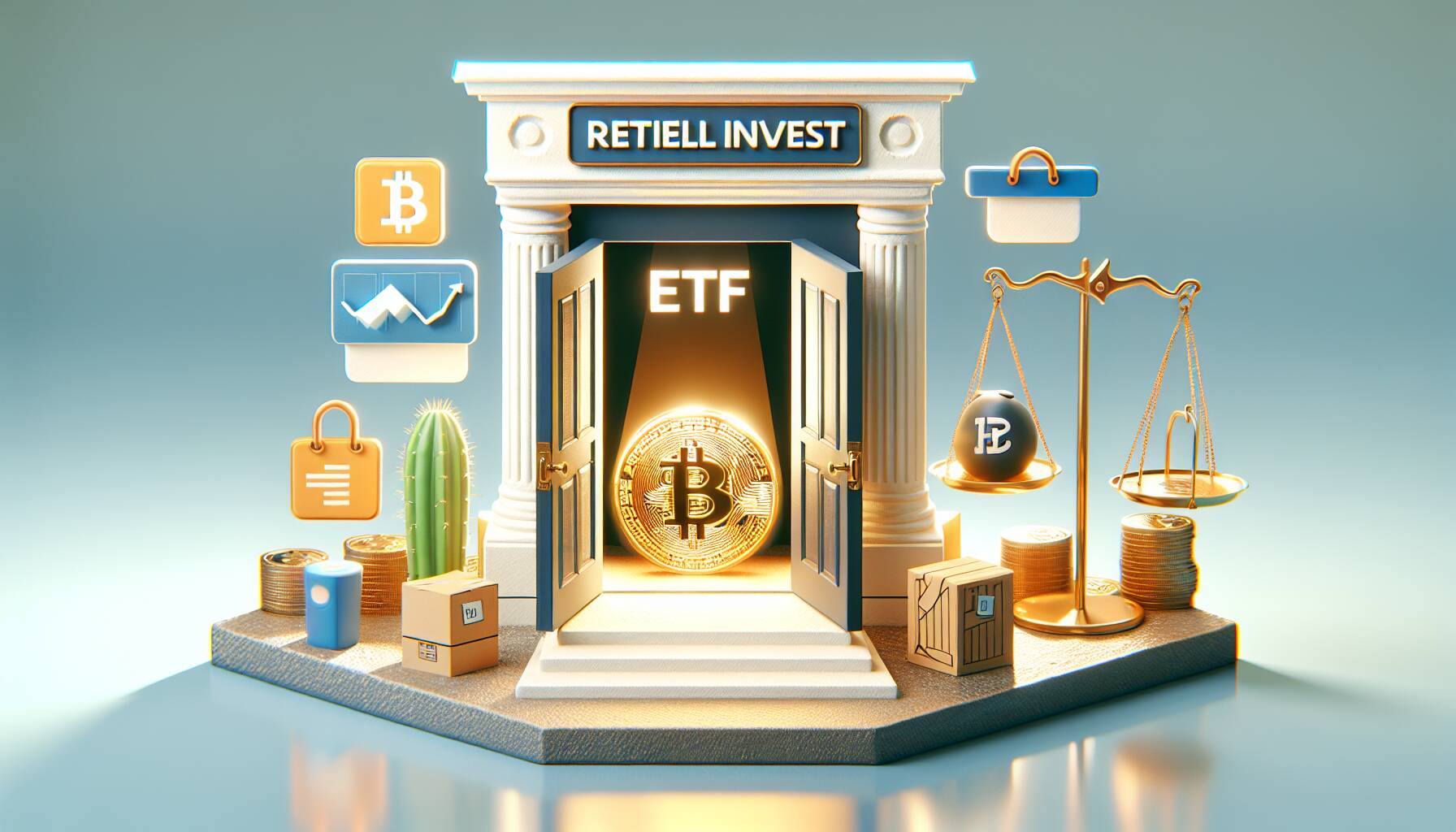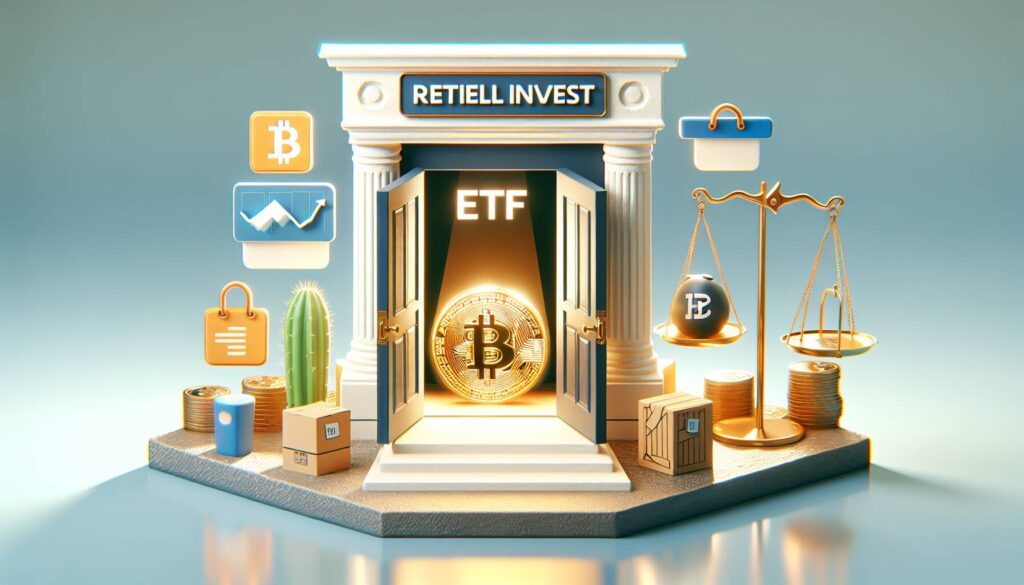Jacobi Asset Management has made a groundbreaking move by lowering the entry barriers for its Bitcoin (BTC) exchange-traded fund (ETF), allowing European retail investors the opportunity to invest for the first time. This pivotal change follows the recent removal of professional-only and minimum investment requirements by the Guernsey regulator, marking a significant shift in the accessibility of cryptocurrency investments.
Originally launched in 2023 on Euronext Amsterdam, the ETF was designed to uphold institutional-grade standards in terms of security, transparency, and compliance. Previously, access was limited to professional investors, adhering to stringent regulatory requirements that reflected the market’s maturity at the time. However, as the financial ecosystem evolves and institutional and governmental acceptance of Bitcoin continues to grow, Jacobi Asset Management has collaborated closely with partners like Collas Crill, Midshore Consulting, and Sigma Asset Management to remove these restrictions.
This strategic shift addresses the need for broader market inclusivity, enabling access to the ETF through regulated brokerage and investment platforms that comply with national regulations. The enhancement of accessibility is set to attract a wider audience of investors, further integrating cryptocurrency into mainstream finance.
As a hallmark of safety, Zodia Custody continues to provide secure institutional-grade custody solutions for the fund. Peter Lane, CEO of Jacobi Asset Management, expressed enthusiasm about this development, stating, “Our fund was designed from day one with a regulated, institutional-grade structure that investors could trust and were familiar with. Now, with greater regulatory alignment and growing public interest, we’re delighted to expand access to all investors across eligible jurisdictions.” This expansion not only represents a milestone for Jacobi but also enhances Guernsey’s reputation as a progressive jurisdiction for digital assets.

Jacobi Asset Management Lowers Barriers for Bitcoin ETF
The key points regarding the recent developments in the Bitcoin ETF by Jacobi Asset Management include:
- Lowered Entry Barriers: Retail investors in Europe can now participate in the Bitcoin ETF.
- Regulatory Changes: The Guernsey regulator has removed professional-only and minimum investment requirements.
- Institutional-Grade Standards: The ETF is designed to offer high levels of security, transparency, and compliance.
- Strategic Partnerships: Collaborations with Collas Crill, Midshore Consulting, and Sigma Asset Management facilitated the removal of retail restrictions.
- Enhanced Market Inclusivity: Broader access to the ETF via regulated brokerage and investment platforms increases participation.
- Secure Custody Solutions: Zodia Custody ensures institutional-grade security for the managed funds.
- CEO Statement: Peter Lane emphasized the importance of regulatory alignment and expanding access to all eligible investors.
- Impact on Guernsey: This development positions Guernsey as a forward-looking jurisdiction in the digital asset sector.
“Our fund was designed from day one with a regulated, institutional-grade structure that investors could trust and were familiar with.”
Jacobi Asset Management’s Bitcoin ETF: A Game Changer for Retail Investors
The recent developments surrounding Jacobi Asset Management’s bitcoin ETF represent a significant shift in the investment landscape, particularly for European retail investors. By lowering entry barriers and removing previous restrictions, Jacobi has not only democratized access to bitcoin investment but also showcased its commitment to transparency and compliance.
Comparatively, traditional financial institutions have often maintained high entry barriers for cryptocurrency-related products, fearing regulatory backlash and heightened market volatility. However, other similar initiatives, such as the VanEck ETF and ProShares Bitcoin Strategy ETF, have primarily targeted institutional investors or those with considerable capital, thus limiting participation to a select few. While both initiatives upheld regulatory standards, they didn’t adapt as swiftly to the consumer demand for accessible investment in bitcoin, placing Jacobi at a competitive advantage. Their focus on inclusivity could quickly attract a broader investor base, from millennials interested in alternative assets to seasoned investors seeking diversification.
On the flip side, the shift towards greater retail access does introduce potential challenges. The influx of retail investors may increase market volatility, attracting scrutiny and potentially prompting regulators to impose stricter guidelines. Additionally, while Jacobi has positioned itself as a secure and trustworthy option, the general perception of cryptocurrencies remains cautious among more traditional investors. As the ETF gains traction, it could spark jealousy or competitive reactions from existing market players, forcing them to reconsider their strategies or adapt their offerings.
This move by Jacobi could benefit a multitude of stakeholders. Novice investors, eager to explore cryptocurrency without the intimidation of hefty minimums, are likely to respond positively to this development. Additionally, financial advisors and brokers can leverage this ETF in their portfolios, offering clients innovative investment opportunities with a reputable institution backing them. Conversely, established hedge funds or traditional investment firms may face challenges as they watch retail investors flock to more accessible options, amplifying the pressure to innovate or enhance their cryptocurrency offerings.
In summary, Jacobi Asset Management’s strategic approach not only signals a new wave of inclusivity in the cryptocurrency market but also sets a fast-paced competitive environment, thereby redefining how retail investors interact with digital assets.
















